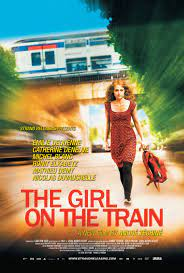Claude Faraldo’s Themroc is likely to strike you more as a connected series of assorted provocations than as a meaningfully
sustained vision, with an occasional sense of throwing stuff out to see how
much sticks: happily, it works better than might have been expected. Broadly
summarized, the film follows a blue-collar painter (Michel Piccoli) who one day
snaps and starts trashing his apartment, inspiring a few others in adjacent
buildings to follow suit, with the authorities largely powerless to intervene; he
also has sex with his sister, among others, perhaps engages in cannibalism, and
in general arrives at, at least for the short term, an alternative, seemingly
satisfying mode of living. The film is set in a version of then present-day
France, providing ample footage of drab-looking, bottled-up people stuck in
dull and repetitive lives, much that could be either documentary or a Candid
Camera-style bending of it, but strangified by the absence of any intelligible
dialogue: on the few occasions that people speak at all, they do so in grunts
or shrieks or streams of gobbledygook. The casting of Piccoli with his
impeccable art-film resonance certainly adds to the intrigue of the film’s
implied puzzle, especially when supplemented with that of Beatrice Romand (from
Rohmer’s Claire’s Knee!) as the almost perpetually half-naked sister: the
two ensure that there’s a strange delicacy at the heart of the chaos. It finds its
final flourish in the film’s sweetest sequence, in which they gently seduce a bricklayer
(Patrick Dewaere) who’s working on repairing a wall, luring him into joining them in kicking down his own handiwork and in the subsequent sexual
ecstasy. Ultimately, the film doesn’t have too much to offer as analysis or
diagnosis or social prescription, but the weirdly deliberate
specificity of the whole thing easily keeps boredom at bay.




